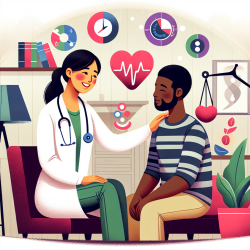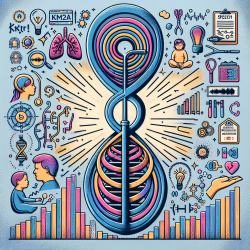In the realm of healthcare, empathy is more than just a desirable trait; it is a critical component of effective patient care. The research article "Why Empathy Has a Beneficial Impact on Others in Medicine: Unifying Theories" explores the profound effects of empathy on health outcomes and offers insights into how practitioners can harness this powerful tool to enhance their practice.
The Role of Empathy in Medicine
Empathy in medicine is often viewed as a communication competence that bridges the emotional gap between physicians and patients. It involves understanding and sharing the feelings of others, which can significantly influence patient satisfaction and treatment adherence. Empathy goes beyond mere sympathy; it requires an active engagement with the patient's emotional state, fostering a therapeutic alliance that promotes healing.
Theoretical Frameworks: Social Baseline Theory and Free Energy Principle
The article introduces two theoretical frameworks that elucidate the mechanisms through which empathy impacts health outcomes: the Social Baseline Theory (SBT) and the Free Energy Principle (FEP).
- Social Baseline Theory (SBT): This theory posits that social support reduces the need for self-regulation by conserving energy through social interactions. The presence of empathetic individuals can alleviate stress and enhance emotional well-being, thereby improving health outcomes.
- Free Energy Principle (FEP): FEP suggests that the brain minimizes surprise by optimizing predictions about the environment. Empathy can modulate these predictions, reducing uncertainty and promoting adaptive responses to stressors.
Practical Implications for Practitioners
For healthcare practitioners, integrating empathy into daily practice can lead to remarkable improvements in patient care. Here are some strategies to enhance empathetic skills:
- Active Listening: Engage with patients by listening attentively to their concerns without interrupting. This fosters trust and encourages open communication.
- Non-Verbal Communication: Use body language, such as eye contact and nodding, to convey understanding and compassion.
- Cognitive Empathy: Practice perspective-taking to understand the patient's experiences from their point of view.
- Emotional Regulation: Balance empathy with emotional regulation to prevent burnout and maintain professional well-being.
The Impact of Empathy on Health Outcomes
The benefits of empathy extend beyond individual interactions. Studies have shown that empathetic physicians experience fewer malpractice claims and higher patient satisfaction rates. Patients are more likely to adhere to treatment plans when they feel understood and supported by their healthcare providers.
Moreover, empathy contributes to better clinical outcomes. For example, diabetic patients under the care of empathetic physicians demonstrate better control over their condition compared to those with less empathetic caregivers.
A Call for Further Research
The exploration of empathy's impact on health is ongoing. Practitioners are encouraged to delve deeper into research to uncover new insights and refine empathetic practices further. Understanding the neurobiological mechanisms behind empathy can lead to innovative approaches in patient care.
To read the original research paper, please follow this link: Why empathy has a beneficial impact on others in medicine: unifying theories.










